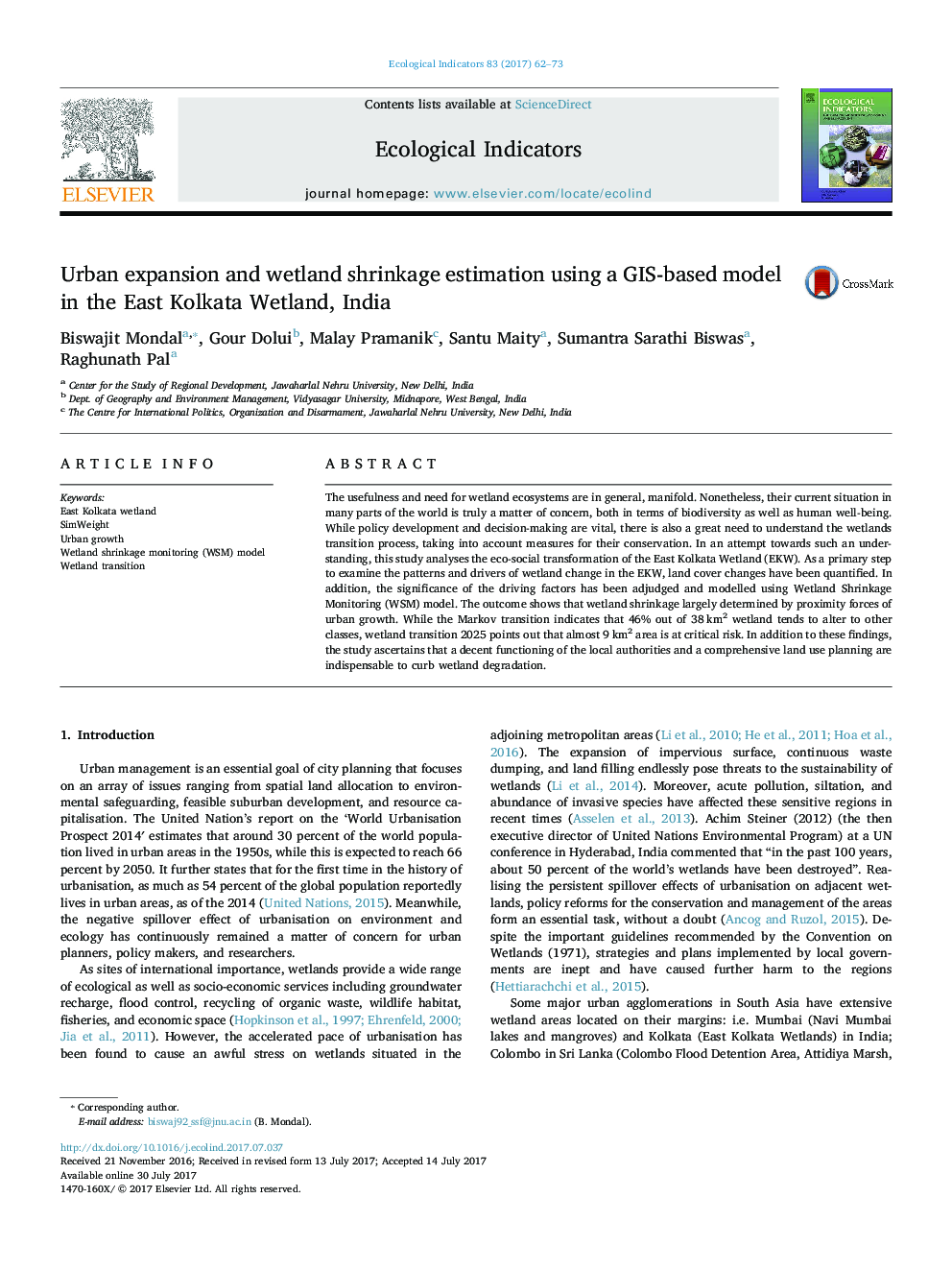| کد مقاله | کد نشریه | سال انتشار | مقاله انگلیسی | نسخه تمام متن |
|---|---|---|---|---|
| 5741478 | 1617119 | 2017 | 12 صفحه PDF | دانلود رایگان |

- LULC analysis shows mainly built-up land expansion consumes urban peripheral wetland.
- Infrastructural activity and urban developmental projects are the active agents of wetland shrinkage.
- Markov Transition Probability Matrix has shown only 39 percent of wetland area will remain in 2025.
- Simulated 2025 wetland surface shows extensive outlier loss.
- The absence of institutional coordination, financial support, and land use regulations are the main determinants of policy failure.
The usefulness and need for wetland ecosystems are in general, manifold. Nonetheless, their current situation in many parts of the world is truly a matter of concern, both in terms of biodiversity as well as human well-being. While policy development and decision-making are vital, there is also a great need to understand the wetlands transition process, taking into account measures for their conservation. In an attempt towards such an understanding, this study analyses the eco-social transformation of the East Kolkata Wetland (EKW). As a primary step to examine the patterns and drivers of wetland change in the EKW, land cover changes have been quantified. In addition, the significance of the driving factors has been adjudged and modelled using Wetland Shrinkage Monitoring (WSM) model. The outcome shows that wetland shrinkage largely determined by proximity forces of urban growth. While the Markov transition indicates that 46% out of 38Â km2 wetland tends to alter to other classes, wetland transition 2025 points out that almost 9Â km2 area is at critical risk. In addition to these findings, the study ascertains that a decent functioning of the local authorities and a comprehensive land use planning are indispensable to curb wetland degradation.
135
Journal: Ecological Indicators - Volume 83, December 2017, Pages 62-73